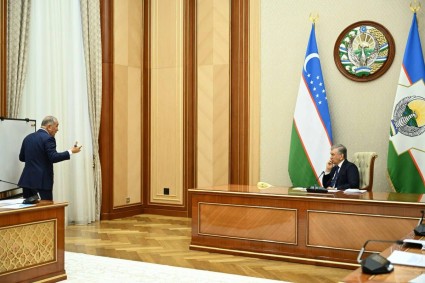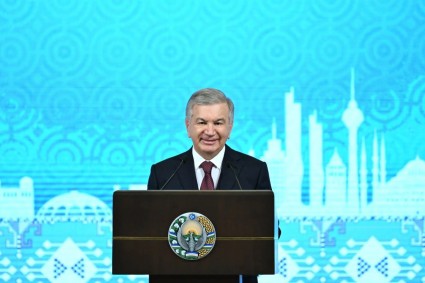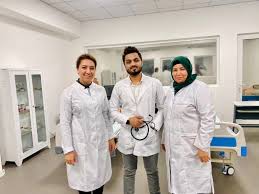The Ministry of Preschool Education (MPSE), the World Bank and the United Nations Children's Fund (UNICEF) co-organized an international conference on the relevance of innovative learning environment for children’s holistic development in Uzbekistan’s preschools.
The international conference titled “Role of Innovative Learning Environment in Enabling Child's Holistic Development” was held in Tashkent on November 19, 2018. The purpose of the event was to debate on how international best practices in the area of preschool infrastructure could be considered for Uzbekistan’s context.
Local and foreign experts from Russia, South Korea, South Africa, the United Kingdom, as well as specialists of the Council of Europe Development Bank, the World Bank, UNICEF, respective ministries and state agencies had a chance to exchange experience in preschool infrastructure development, modernization and construction in urban and rural areas.
Presidential Advisor on Youth, Science, Education, Healthcare and Sport Abdujabbor Abduvakhidov, Minister of Preschool Education Agrepina Shin, World Bank Country Manager Hideki Mori and UNICEF Country Representative Sascha Graumann welcomed event participants.
“In order to create a competitive system of pre-school education, it is necessary to introduce new management principles into it. Specifically, to ensure its development on the principles of integration and synergy of informational, human, managerial and financial resources. The introduction of effective design mechanisms and the creation of an educational environment in the area of pre-school education will contribute to the development of a network of non-state pre-schools, improve the quality of the services they provide, and also ensure the development of a healthy competitive environment in this sector”, said Minister of Preschool Education Agrepina Shin in her welcome speech.
“The Government is planning to achieve 100 percent enrolment for children aged 6-7 by 2021. This is an ambitious but achievable goal, and the World Bank is ready to support Uzbekistan with our global knowledge and financial resources to support the preschool education sector reform”, said Mr. Hideki Mori. “Namely, in 2019, the World Bank will allocate US$55 million for implementing a project designed to ensure that quality preschool services are delivered to small children in the country and improve quality of the national preschool education system, including better learning environment in preschools in rural and urban areas.”
Safe spaces and learning environments, including preschool buildings, classrooms, sports facilities and playgrounds, foster children development, learning, and inclusivity. There is evidence showing that education infrastructure is a crucial input to the educational process and it has a direct effect on students’ performance.
Although minimum infrastructure standards may ensure a basic level of quality, research has shown that additional dimensions of learning environments explain a statistically significant share of the variation in students’ outcomes. While natural environmental factors such as light, sound, temperature, and air quality explain variations in students’ performance, evidence shows that factors that promote stimulation and individualization also matter.
Education infrastructure is especially relevant to Uzbekistan’s preschool education system, according to a survey involving 2,000 families carried out by the MPSE in 2017. Parents pointed out inadequate infrastructure as being one of the biggest barriers to preschool education. These existing conditions of infrastructure in Uzbekistan are clear demand side-barriers that need to be removed.
Therefore, the conference participants welcomed the Government’s plans to renovate and construct thousands of preschools in the next ten years. They noted that the concept of effective learning environments should be integrated into these processes to ensure further physical, emotional and intellectual development in children.
During the conference participants discussed a range of topics. They included challenges for developing effective learning environments for children in urban and rural areas; impact of education infrastructure and classroom design on pupils’ performance; introduction of modern child-friendly and age-appropriate equipment and furniture, as well as teaching and learning materials.
In Uzbekistan, the World Bank is implementing 18 projects totaling over US$ 3.3 billion with the aim to support the Government’s social and economic reforms. These projects help implement critical macroeconomic reforms, develop agriculture and water resources management, healthcare, education, water supply and sanitation, energy, transport, and urban sectors. They contribute to the country’s economic growth and higher living standards for the people of Uzbekistan.















